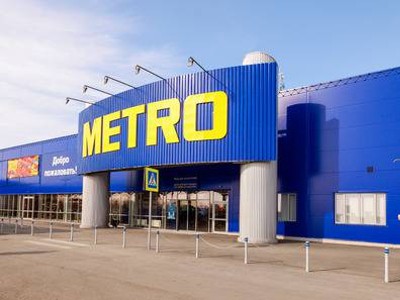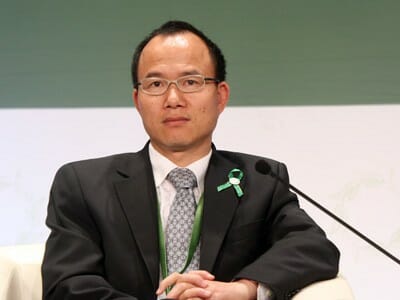
Fosun’s investment in Metro could give the wholesaler better access in China
Chinese investment firm Fosun International is reportedly in talks to to buy a 426 million euro ($495 million) stake in German food wholesaler Metro AG, unnamed sources told Bloomberg. With Metro’s current market capitalization of 4.85 billion euros, Fosun would hold 8.8 percent of the company.
Fosun is buying the shares from Europe’s largest electronics retailer Ceconomy AG, which was split from Metro’s food business last year. While mainland investors such as Dalian Wanda Group have been rapidly unwinding their overseas holdings, Fosun last week purchased an 80 percent stake in a UK diamond grading organisation, and was reported to be buying British-based commodities broker Marex Spectron.
Hypermarket Consolidation Follows Metro to China
Global consolidation in the hypermarket industry has taken a toll on Metro. The retail group said this month that it will sell Real, its European hypermarket chain, as the company vows to focus on its wholesale business.
The investment by Fosun offers Metro potential access to the mainland market where the company, like many other international retailers, has struggled to gain traction with Chinese consumers.
In 2013, Metro’s then-electronics retail affiliate MediaMarkt announced that it would close its seven outlets in China, just three years after vowing to open 100 mainland stores by 2015. Through its Metro wholesale market division the company started operating in China in 1996 and grew to 97 locations across the country, according to the retailer’s website. While Metro has emphasized the business-to-business market, foreign big box players have been struggling in China for years.
Earlier this year, Lotte Shopping announced it was selling one of its subsidiaries operating Lotte Mart in the country to WuMart parent company Wumei Holdings for 248.5 billion won ($230.2 million) following a spat between China and South Korea over the deployment of an anti-missile defense system.
UK-based grocer Tesco also sold off a majority stake in its China operations in 2015 to China Resources Enterprises after struggling in the country. With Costco now also entering the market with planned locations in Shanghai and Shenzhen, China’s hypermarket industry is only getting more competitive.
Metro Backtracks from Retail Play in China
Metro did briefly explore consumer retail in China through a chain of convenience stores called MyMart, which first opened in 2016. By the end of 2017, however, the company announced it was closing all the shop locations, citing increasing rents and changes in the competitive landscape.
In 2017, Metro reported a 1.6 percent sales increase from the previous year to 37.1 billion euros. Profit took a dive, however, with a 33.5 percent plunge to 345 million euros. So far this year, Metro’s stock price on the German exchange Xetra has fallen more than 20 percent to less than $14 from more than $17 in January.
Fosun’s Folli Follie Folly
While the Fosun marriage holds the promise of access to a mainland where first quarter retail sales of $1.44 billion surpassed US turnover of $1.30 billion, the company founded by billionaire Guo Guangchang and a set of his Shanghai schoolmates has a mixed history when it comes to consumer brands.
Greek brand Folli Follie, in which Fosun owns a 16.4 percent stake, was caught up in a probe revealing financial manipulation that led to a 4 million euro fine in August. The company suspended trading in May. Fosun reported a 101 million euro fair value loss on its stake in the fashion accessories retailer for the first half of 2018.
While Fosun has also recently announced plans for a $700 million IPO of its tourism business, the cluster of travel acquisitions, which includes a 91.8 percent stake in Club Med, posted losses of RMB 295 million in 2017 and RMB 135 million in the first half of this year.
Bucking the Trend, Fosun Expands Overseas Holdings

Fosun’s Guo Guangchang is committed to overseas investment as other Chinese companies pare back
The losses haven’t hurt Fosun’s appetite for foreign investment. In March, Fosun revealed it was acquiring a 5.11 percent stake in a US senior living operator for $65 million. The investment in Brookdale Senior Living came as other large Chinese firms including Anbang Insurance Group, Dalian Wanda and HNA Group were facing mounting pressure for their own overseas investments.
Fosun has so far been undeterred as other firms scale back their investments and offload properties. In February, Fosun paid 120 million euros for a controlling stake in Lanvin, France’s oldest luxury couture house. Soon after, Guo told the Financial Times that his company would be looking at more overseas investments.
Just three months later, the investment firm bought a majority stake in Austrian lingerie maker Wolford, which owns 262 offline monobrand boutiques, according to the company’s interim 2018 report.
Leave a Reply